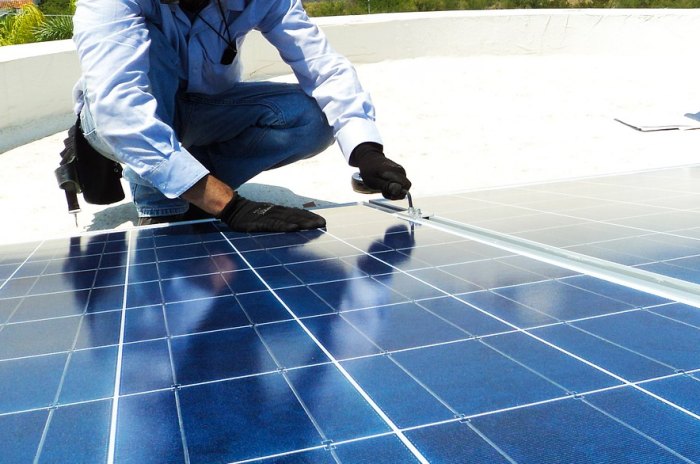
Image: chrischesneau
There was little in Budget 2018-19 directly related to renewables, but small businesses have been provided an extended incentive to go solar.
A $20,000 instant asset write‑off, first introduced in the 2015‑16 Budget, was due to end on June 30 this year. However, it will be extended for a further 12 months to June 30, 2019.
“This will improve cash flow for small business, helping them to reinvest in their business and replace or upgrade their assets,” states the Budget 2018-19 web site. “Extending this measure means small businesses will have more opportunities to invest and grow.”
The instant write-off covers assets including small-scale commercial solar power systems.
Good quality commercial solar power currently costs around $1,000 – $1,300 per kW installed in Australia, including the reduction provided by Australia’s major solar subsidy.
At the low end of the pricing range, a 20kW system could be installed. This will generate approximately 80 kilowatt-hours of electricity a day on average and in a commercial scenario there may be the opportunity for 100% self-consumption.
Given the plummeting cost of components and various financing options, it’s reached a point that if a business can afford to pay its electricity bills, it can now afford to go solar.
A business can claim the immediate deduction (business portion) if it has a turnover less than $10 million. Systems costing less than $20,000 are written off in the year they are bought and used, or installed ready-for-use.
Businesses wanting to take advantage of the instant write-off should first check with a tax professional before signing any contracts to ensure it will apply.
Elsewhere on the energy front, the Budget was rather ho-hum; as it was in relation to climate change and emissions reduction generally.
The Climate Council was scathing of the Budget, stating it fell short on new funding to support renewable energy and storage technology, and that Australia was at risk of cementing its reputation as a global laggard on slashing emissions.
“Australia must rollout credible climate and energy policy that ramps up our transition to clean, affordable and reliable renewable energy and storage technology, while moving away from our polluting fossil fuel past. The only thing standing in our way is political will,” said Climate Council Acting CEO Dr Martin Rice.
One other renewables-related bright spot in the Budget was pointed out by RenewEconomy’s Giles Parkinson – the budget papers still include the (up to) $110 million equity investment pledged for SolarReserve’s 150MW solar thermal and 1,100MWh molten salt storage project (Aurora) in Port Augusta, South Australia.

 RSS - Posts
RSS - Posts



Speak Your Mind